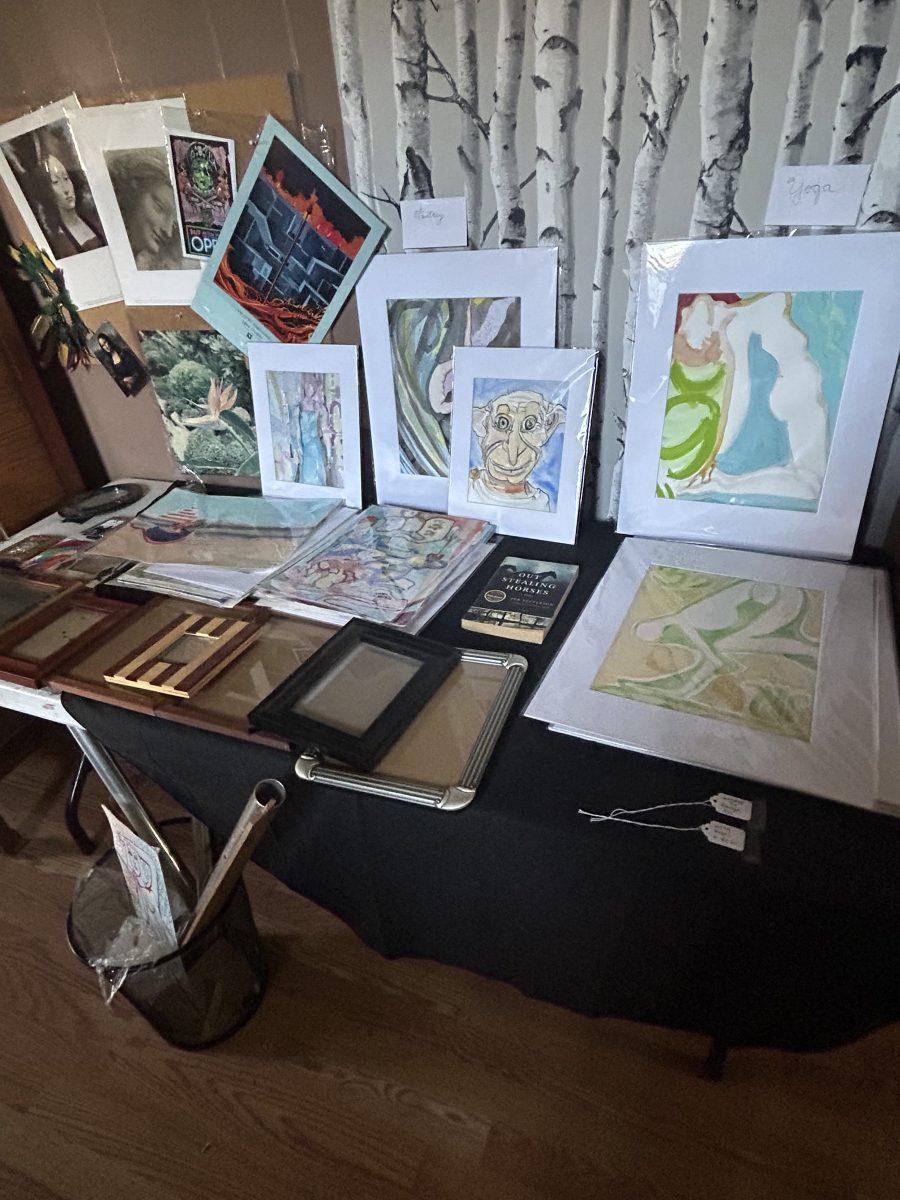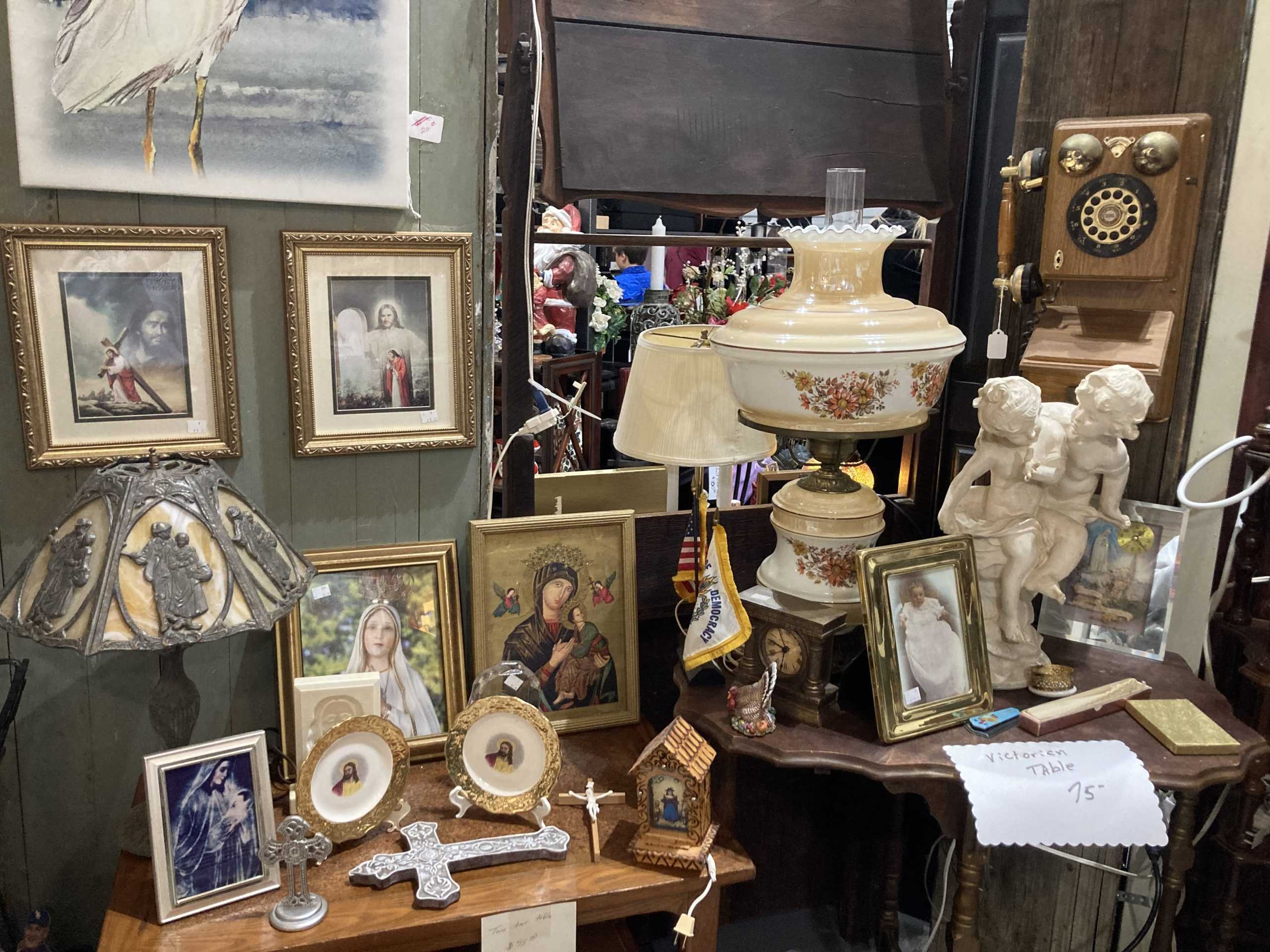Thrifting is a well-known method for finding fashionable attire at low prices, but there’s a new, increasingly popular way to find second-hand clothing, jewelry and art: Estate sales.
Estate sales have long been coveted by antique collectors and vintage lovers. Paula Hooper, an antique collector and owner of Central City Antiques, began putting on estate sales in the Baton Rouge area two years ago. She has noticed more young shoppers attending the sales than before.
“We’re getting more and more of the younger crowd into these estate sales,” Hooper said. “They are at the point where they are starting to buy, collect and sometimes repurpose the things that the older generations had.”
A few of the most popular items among young shoppers are fur coats, broaches, old cameras and other vintage garments that are coming back in style, according to Hooper. Bronley Wittmann, a senior studio art major at LSU, is a regular estate sale goer. She feels that estate sales offer a more personable shopping experience than a regular thrift store.
“I’m a very nosy person, and I like seeing what the houses look like on the inside,” Wittmann said. “Aside from that, I think that someone’s collection says a lot more about their character, which is much different than going to a chain like goodwill and seeing things that are either junk or donated by family members, where they don’t know if they actually had any value.”
Objects at estate sales are often arranged in places where they might have been used by the previous home owners. This means clothes might be hung in closets, cooking ware placed on the kitchen counters and furniture and decor spread out naturally throughout the home. This can give the shopping experience a very intimate feel.
“You have to have a sense of reverence, almost going through someone’s things,” Wittmann said. “I think that’s part of the appeal too, respecting other people’s things and giving them a new life.”
Some estate sale frequenters search for specific kinds of antiques and rare items. When Ann Marie Erie, a Baton Rouge native, shops at estate sales, she keeps her eyes peeled for rare pink cherry glasses from the depression era to match her set at home. She also looks for other vintage items of value that estate sales often carry.
“That’s where you get original, unique pieces,” Erie said. “Oftentimes, it will get passed down in generations, so it’s something very valuable. The younger people don’t know exactly what they’ve got, so you can find all sorts of beautiful heirloom pieces that they would’ve otherwise tossed away.”
Estate sales require lots of time and organization to pull off. For this reason, many families hire outside estate sale orchestrators like Hooper to categorize, price and sell the goods for them.
Although Hooper’s only form of advertisement is through word of mouth, she has worked enough estate sales to get her routine down pat. When she takes a job, she first assesses the home and determines what level of cleaning is required. She then researches objects to properly price them, then usually opens the estate for a Thursday through Sunday sale. Hooper donates whatever items remain after the weekend and gets her client a tax write off. By next Wednesday the home will be empty.
“That’s what people want,” Hooper said. “They want you to get in there, sell their stuff and then be out of there in two weeks if you can.”
Because estate sales are often put on by younger family members for a deceased relative, it can be difficult to evaluate the worth of some older household objects. In order to combat this issue, Hooper does extensive research on items before putting them up for sale. She says goods sell better when they have a traceable history behind them.
“That’s what we try to provide is the history,” Hooper said. “I always research everything before we put it up for sale to see if we can put a history behind it or a description behind it, because a lot of people don’t know one piece of china from the next. When you put history behind something, you have a better chance of selling it, because you’re actually selling the history.”
While some people hire outsiders to manage their estate sales, others undertake the task on their own. Judy Adams, a Baton Rouge native, held an estate sale at her home Friday through Sunday. Adams did her own pricing research and set everything up with the help of her family.
In Adams’ home nearly everything was for sale. An artist by hobby, her paintings decorated the tables and were marked with modest prices. Chests, stools and lamps waited for purchase. One shopper dug up plants in her backyard and offered to buy her old chicken coop.
Marc Ellender, Adam’s son, waited on customers and kept track of sales. Some of his childhood toys and belongings were being sold at the estate sale. He said that although it was difficult to watch his things go, he was happy to think that they might be finding a happier home.
“There’s a lot of sentiment, especially for me,” Ellender said. “I’ve had things I’ve had since I was a child that have all sold. It’s bittersweet. My main goal is to have people want these things and use them at home, to enjoy them the way I did when I was a kid.”
Baton Rouge estate sales bring in young shoppers to repurpose generations of history
December 5, 2024
Judy Adam’s artwork decorates tables at her estate sale.






